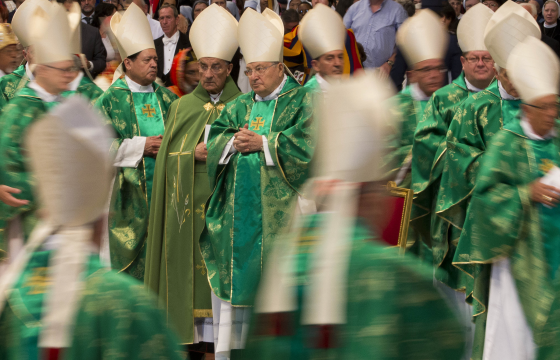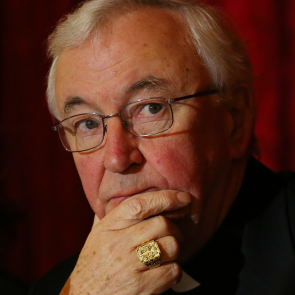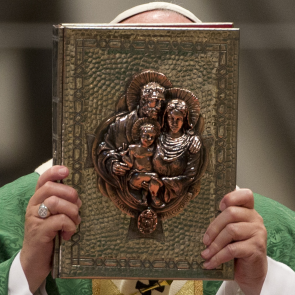In his homily for the opening Mass for the Synod on the Family yesterday, Pope Francis set out, in a broad sweep based on the Scripture readings for the day, the exacting task of the participants.
The readings were from Genesis, showing the way the love between a man and a woman goes back to the beginning of Creation; from Mark’s Gospel, where Jesus resoundingly insists “what God has joined together, let not man put asunder”; and from Hebrews, whose letter writer refers to the idea of universal brotherhood.
The readings “seem to have been chosen precisely for this moment of grace which the Church is experiencing”, Francis said. They centred on “three themes: solitude, love between man and woman, and the family”.
ALL THE LATEST FROM THE SYNOD ON THE FAMILY...
Synod's division bell rings for the devolution of power - Christopher Lamb
Will the synod fathers be surprised by the Spirit? - Christopher Lamb
Pope: divorced and remarrieds not the only subject for synod
Synod will not change teaching on communion for divorcees - Christopher Lamb
Synod must not see family as the problem - James Roberts
He used the idea of it not being good for Adam to be alone to point not only to Adam’s need for a “helper” but to the loneliness at the heart of so-called advanced societies, “the very ones which have the lowest birth-rates and the highest percentages of abortion, divorce, suicide, and social and environmental pollution”.
This sorrowfulness was contrary to God’s will, he said. “God’s dream” is to see his “beloved Creation … fulfilled in the loving union between a man and a woman, rejoicing in their shared journey, fruitful in their mutual gift of self”. Jesus presents the same plan, he said, and Francis quoted from the Gospel reading: “From the beginning of creation, ‘God made them male and female’. For this reason a man shall leave his father and mother and be joined to his wife, and the two shall become one flesh. So they are no longer two but one flesh.
”This shows that the goal of conjugal life, Francis said, “is not simply to live together for life, but to love one another for life! In this way Jesus re-establishes the order which was present from the beginning.
 Bishops at the Mass to celebrate the Synod of the Family at St. Peter's Basilica, in the Vatican (PA)
Bishops at the Mass to celebrate the Synod of the Family at St. Peter's Basilica, in the Vatican (PA)
”To the question, how is this possible, Francis answer was deeply challenging: “only in the light of the folly of the gratuitousness of Jesus’ paschal love will the folly of the gratuitousness of an exclusive and life-long conjugal love make sense”. In other words, Jesus’ insistence on life-long marriage only makes sense in the self-denial of the Cross.
The Church he said must carry out her mission “in fidelity, truth and love”, but, in an image he has used several times, she must have the role of a “field hospital” with doors “wide open to whoever knocks in search of help and support; even more, to reach out to others with true love, to walk with our fellow men and women who suffer, to include them and guide them to the wellspring of salvation.”
In this role, he said, it is important to remember the words of St John Paul II: “Error and evil must always be condemned and opposed; but the man who falls or who errs must be understood and loved… we must love our time and help the man of our time.” And the words of Jesus: “the Sabbath was made for man, not man for the Sabbath”.




 Loading ...
Loading ...